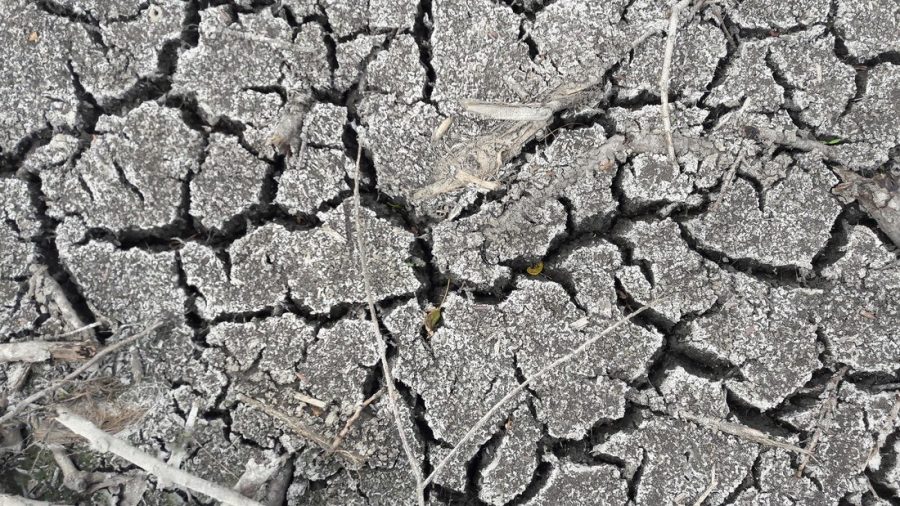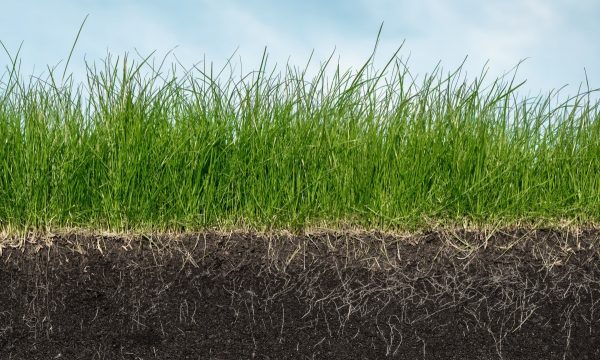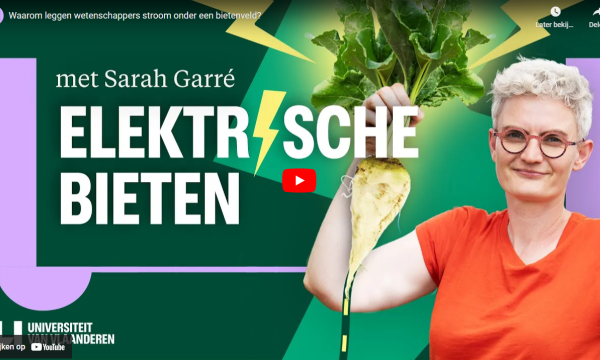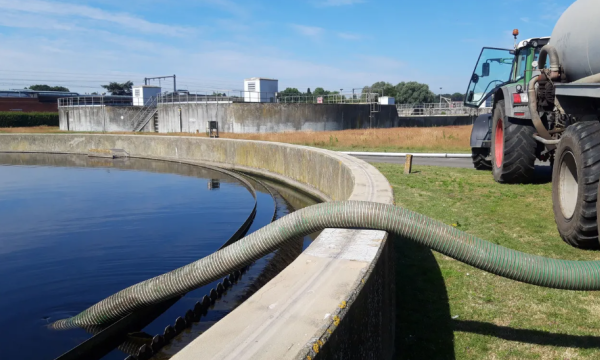Press release ILVO launches website and highlights potential of agricultural climate buffers

ILVO launches a website on climate-smart agriculture and climate research: www.ilvo.vlaanderen.be/ELK. All background information, knowledge and current research projects of the ILVO Center of Expertise for Agriculture and Climate (ILVO-ELK) are bundled there. This was announced at the ILVO study day on 17 April 2018 'Working towards a new balance between agriculture and climate'. At that study day, the latest scientific insights and updates were presented in 10 accessible lectures.
Climate buffer
Among the livestock experts, the prediction was that (ruminant) cows will emit 30 to 40 percent less methane in the foreseeable future. At the same time, the research appears to be more global in its focus on a lower carbon footprint of feed for all animal categories.
ILVO also championed the idea of agricultural landscapes as climate buffers in a highly urbanized Flanders. By analogy with ecosystem services, an agricultural area can in time be given a more conscious function as a cooler or as a water regulator, provided that it is designed in a climate-smart way and the necessary studies and policy measures are taken.
New climate website: challenges, research, possible solutions
The ILVO Center of Expertise for Agriculture and Climate was established at the end of 2016 under the impetus of then-Flemish Minister of Environment, Nature and Agriculture Joke Schauvliege. One of its tasks is to bundle the climate knowledge present in the various ILVO units and make it available to policymakers and private stakeholders. This is done, among other things, by organizing a seminar, but also by launching a website: www.ilvo.vlaanderen.be/ELK.
On this website, everyone can now find facts and figures on climate change and an update on international climate and agriculture research. In addition, it offers an overview of current ILVO research projects and a list of experts per theme. Those themes are climate smart agriculture, soil, animal production, energy, landscape, marine environment and plant production. For farmers, policy makers, journalists and/or students who are concerned with the climate challenges we are facing in Flanders, this website will undoubtedly become an indispensable tool.
Rural area as climate buffer
The fact that climate change is high on many people's agendas was demonstrated by the large number of participants at the April seminar. In front of an overflowing room of policymakers, researchers, consultants, journalists, and so on, researcher Jeroen De Waegemaeker launched the idea of agricultural climate buffers. "Until now, we mainly looked at natural areas to absorb floods and provide cooling. But agricultural landscapes can also contribute to a climate-resilient region." Due to climate change, Flanders is facing more frequent extreme weather phenomena such as heavy rainfall, heat waves and long periods of drought. Climate adaptation is an additional argument to especially NOT further seal the agricultural space (45% of Flanders is agricultural land). Today, for example, the grasslands along rivers already protect the local residents from flooding. Accessible fields in the outskirts of towns offer cooling to overheated city dwellers. Through smart level management of the finely meshed watercourses, water is retained for drier periods. "But the Flemish agricultural area is under great pressure. ILVO underlines the importance of the possible climate adaptation services," says De Waegemaeker. It is possible that different priorities and therefore different rural 'establishments' will emerge for each area: Where is agricultural space absolutely crucial and to be protected for its first and only function food production? Which area can be used as a water buffer? Where is recreational co-use possible? In the future it is best to work on extensive farmer participation, on vision creation and on a fair financing model, in the interest of everyone, farmer and citizen, rural and urban.
Livestock farming: attention to more than methane
Another theme that clearly stirred the room was the contribution of livestock farming to climate change (5% for Flanders). ILVO-ELK focuses in its research on methane reduction by ruminants through feed additives and ration adjustments, but also on more efficient production systems. "In time, we hope to reduce methane emissions by 30 to 40 percent," says researcher Dorien Van Wesemael. But, she immediately adds, "just tackling methane is not enough. We need to address the carbon footprint of the feed for all animal categories, not only for ruminants".
She points to the major contribution of imported soy to the greenhouse gas emissions of the livestock sector (through deforestation), and the relative importance of soy in the rations of the different animal species (19% for broilers, 12% for layers, 5% for pigs and 4% for cattle). Themes that are therefore high on the research agenda are alternative protein sources, use of amino acids, phase feeding for reduced losses and more efficient animals.
About ILVO-ELK
ILVO works within the Center of Expertise for Agriculture and Climate (ELK) on climate mitigation and adaptation in plant and animal production, and on the development of a low-carbon economy in Flanders.
Coordinator Sam De Campeneere (ILVO): "We deliberately take a holistic approach, looking at all facets of sustainability of the entire agricultural system."
In plants, the research includes drought-resistant varieties, new crops and exotic diseases and pests. For animals, the research focuses on methane emissions from ruminants. In addition, it looks at how energy use in horticulture can be reduced, how the soil can store more carbon, and the impact of climate change on fish stocks.
The fruits of this work can now be enjoyed at www.ilvo.vlaanderen.be/ELK. You will also find the presentations of the seminar there.


